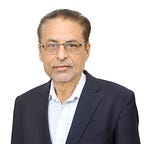The Miracle on the Han River
The Context
Economic development of South Korea has been treated by the world community as a miracle on the Han River. Han is a major river in South Korea due to which the economic growth of South Korea is often symbolically identified with this river. South Korea has successfully implemented the policy of land reforms, high development in rural areas and extension of human resources in the country. South Korea is the member of OECD (which is an organization of high-income economies of the world) and the G-20. It is believed that this country is going to play a dominant role in the global economy by the middle of the 21st century. Its export- oriented growth, powerful redistribution policy, high level of infrastructural growth, a sound and more effective political system are some of its properties on the basis of which it is creating a record of growth in world economic system.The context of the miracle on Han river seems to be similar to the idea of miracle on the Rhine river when after the second world war west Germany recovered quickly and became a leading economic power in the world. South Korean development was first of all compared with this West German development by not other than the then Prime Minister of the Second Republic of South Korea Chang Myon.
Korean Peninsula and Division of Korea
Korean Peninsula is a region in East Asia which was divided into two parts after the defeat of Japan in the Second World War in 1945. Before the Second World War entire Korea was a Japanese colony. After the defeat of China and Russia by Japan in 1894–95 and 1904–5 respectively, Korea was fully controlled by Japan. The culture and economy of Korea was completely under the influence of Japan. However, after the Second World War USA had strong influence on southern part and USSR has similar influence on the northern part of undivided Korea. The army of both of these countries has stationed in these two areas of their influence. Finally, as per the military administrators of both of these areas and their supporting super powers — USA and USSR, Korea was divided into two occupation zones with the 38th parallel as the dividing line but Korea was put under the four power Korean trusteeship. However, due to post war power conflict and lack of trust in mind of the people of Korea for trusteeship, the issue was referred to the U.N. Although, the U.N was not able to satisfy Soviet Union but it supervised an election in the southern part of Korea in which American supporter won the election. On the other hand, Communist Kim II became very popular leader in Soviet backed North Korea. Hence South and North Korea came to existence in 1948 but both had proclaimed themselves as the real power of entire Korea.
Development after the Korean War
Tension in the Korean peninsula still continued after the formation of so called North and South Korea which led to Korean War in 1950. The war continued till July 1953 which changed the course of history of Korean Peninsula. The war was started by North Korea which wanted to unify Korea under the communist leadership. In this situation the U.N and other countries such as U.S, Britain, Canada, France, Belgium, Australia etc supported South Korea which was not a member nation of the U.N. Gradually the position of South Korea improved significantly and since then South Korea is developing rapidly.
Later, South Korea transformed itself from a very less developed economy to a developed economy. It followed rapid reconstruction and development of the economy during the latter half of the 20th century. The country has achieved significant economic and social development. It followed the policy of eliminating the absolute poverty through sustained and rapid economic growth. Its G.D.P grew rapidly in the period between 1988 to 2022. It has not only emerged as a country of big conglomerates like Samsung, Hyundai and LG but it has also become a very successful actor in world economic and social development.
Although, no country can be self-satisfied and particularly South Korea still has various challenges particularly such as unbalanced development which can be observed in the form of regional differences in the life style and standard of living of the people, it has witnessed many more successes than failures in its economic journey. After the Korean war, industrialisation and economic growth has been carried — out by focussing on the development of non — agricultural sectors or the manufacturing units. Due to this there has been a remarkable growth in the share of manufacturing sector in the G.D.P of the country. Country’s per capita income had already multiplied tremendously in next two decades. Consequently, it was able to organise Summer Olympics in 1988 and co-hosting the 2002 FIFA World Cup along with Japan. Today it can be termed as a developed regional power with high technology in many areas. The world community should learn from the experiences of South Korea.
